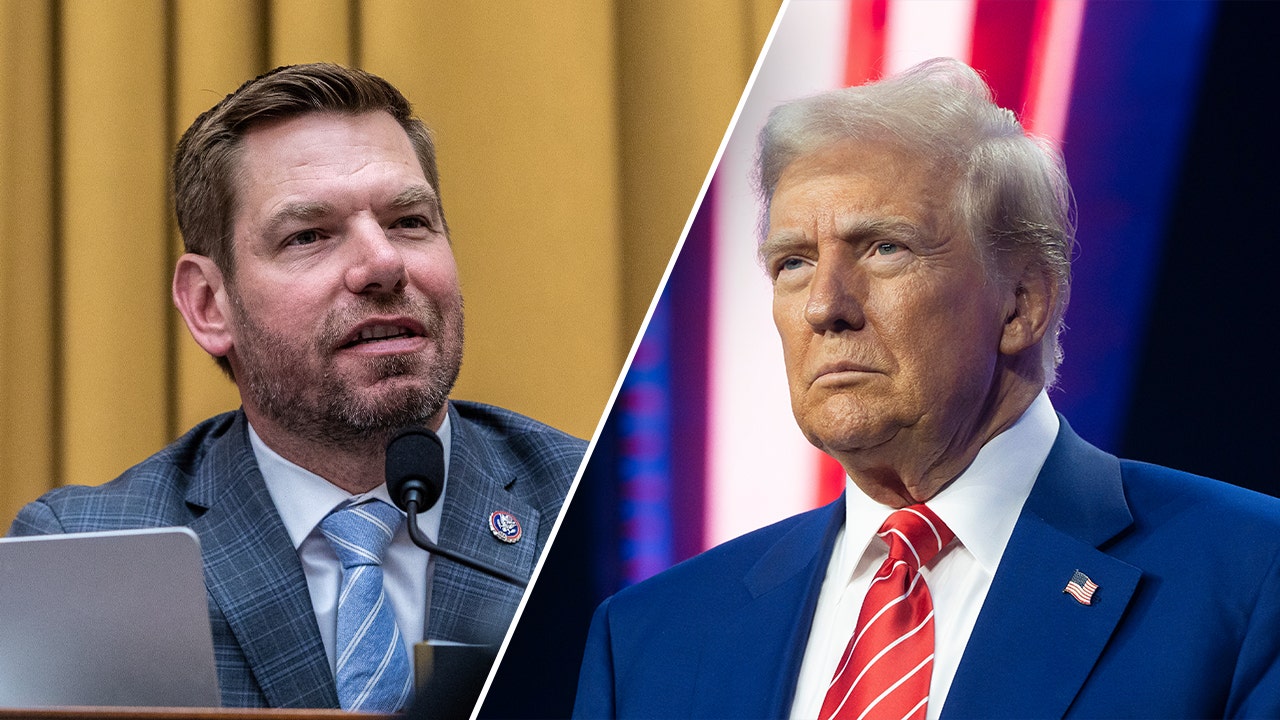Finance
Singapore has pledged billions to fight climate change. Experts say it’s not enough

Singapore’s government has pledged $74.15 billion over the next century to safeguard the city against rising temperatures and floodwaters.
Bloomberg | Bloomberg | Getty Images
Singapore, a tiny city-state with an import-dependent economy, is especially vulnerable to rising sea levels, heat waves and other adverse effects of climate change.
That’s why the government has pledged 100 billion Singapore dollars ($74.15 billion) over the next century to help the country withstand and minimize damages from greenhouse gas emissions. This is an adaptive approach that differs from mitigative measures such as carbon pricing and renewables.
Experts warn, however, that public funds alone aren’t enough for Singapore’s infrastructure and economy to adjust to higher temperatures. Private sources of capital from banks, insurance players and financial markets are also needed, in addition to blended finance projects involving public-private partnerships, they say.
The problem isn’t unique to Singapore.
Around the globe, financing for climate adaptation has traditionally lagged behind mitigation investments that are focused on slowing or stopping the rise in fossil fuel emissions.
That’s primarily due to widespread perception that adaptation and resilience projects don’t really generate revenue, according to Xinying Tok, head of Southeast Asia at environmental consultancy Carbon Trust.
The lack of understanding about adaptation and resilience leads to mispricing across financial solutions, whether it’s in investment, credit or insurance, she continued.
Singapore’s climate challenges
In 2019, Singapore prime minister Lee Hsien Loong said climate change was a matter of “life and death” for the city-state.
Sea levels are projected to rise by 1 meter by 2100 but there’s a risk they could go up to 4 or 5 meters higher than current levels depending on storm surges, land subsidence and other factors, according to authorities.
That kind of increase could “potentially flood one-third of Singapore,” Grace Fu, the minister for sustainability and the environment, has said.
Climate adaptation projects include constructing resilient water systems to manage scarcity during droughts and building barriers like sea walls to protect against rising sea levels, explained Emirhan Ilhan, assistant professor at the National University of Singapore Business School and research affiliate at the Sustainable and Green Finance Institute.
As such ventures improve existing infrastructure, they are often financed with public sources but “collaboration with the private sector is also necessary since no government can shoulder the costs of these projects in its entirety,” he said.
“Although a sense of urgency to tackle adaptation has been widely communicated from the top down in the City State, it has not yet clearly articulated a role for the private sector and the market in adaptation,” said researchers of a report from the Singapore Green Finance Centre (SGFC) in February.
An initiative of London’s Imperial College and Singapore Management University, SGFC was launched in 2020 to advance climate financing solutions.
Mobilizing private capital
1. Catastrophe bonds
Catastrophe bonds — designed to raise money for companies in the insurance industry in the event of a natural disaster — are a widely touted mechanism for climate adaptation.
The Monetary Authority of Singapore, the country’s financial regulator and de facto central bank, has been supporting the sector through its Insurance Linked Securities Grant Scheme, which helps fund upfront costs to issue these debt instruments.
The program produced 23 catastrophe bonds as of late 2022 and has been extended until the end of 2025.
2. Green bonds
Green bonds are another option but so far, the space is dominated by public-sector activity and mostly focuses on mitigating climate change through energy efficiency, clean transportation and sustainable water management.
The corporate green bond market, which lags behind government issuances, also leans heavily toward climate mitigation measures. In 2020, Vena Energy became the first Singapore-based company to issue green bonds in U.S. dollars with a $325 million five-year green bond aimed at refinancing existing corporate loans for green projects.
De-risking adaptation opportunities
World Resources Institute
When the risk-return trade-off isn’t perceived as sufficient for private investors, Singapore must create the right incentives through subsidies or by reducing burdens like taxes, or regulation, said Ilhan.
“The good news is that Singapore is very good at creating predictable and enforceable regulation —therefore, there is reason to be optimistic,” he said.
‘Blended financing’
Blended finance, or public-private partnerships, will be critical for infrastructure projects like climate-proofing airports, coastal protection plans and developing local food production.
In a report published last month, the World Resources Institute (WRI) said guarantees, co-financing or other methods of risk reduction from public players and development finance institutions can help attract private capital.
Another way to increase blended financing is to introduce more risk-tolerant capital structures, the report said, citing Lightsmith Climate Resilience as an example of a private equity fund that invests in solutions to the effects of climate change.
“The fund uses donor capital to create a risk-absorbing junior layer, which carries a higher potential for loss and helps reduce the level of risk for subsequent investors” — that enables Lightsmith to attract an estimated $3.30 of direct commercial investment for every $1 contributed by public financial institutions, the WRI report explained.
Going forward, Tok from Carbon Trust recommends greater market coordination.
Since pricing physical risks is hard, market players in Singapore could benefit from “shared modelling support that allows the potential costs to a range of economic activities to be compared to adaptation costs,” she concluded.

Finance
AM Best Upgrades the Financial Strength Ratings for Employers Holdings, Inc.’s Operating Subsidiaries to “A” (Excellent)

RENO, Nev., Jan. 08, 2025 (GLOBE NEWSWIRE) — Employers Holdings, Inc. (NYSE:EIG), a leading provider of workers’ compensation insurance, is pleased to announce that AM Best has upgraded the Financial Strength Rating (FSR) of each of its insurance companies to A (Excellent) from A- (Excellent) and their Long-Term Issuer Credit Ratings (Long-Term ICR) to “a” (Excellent) from “a-” (Excellent). Concurrently, AM Best has upgraded the Long-Term ICR of Employers Holdings, Inc. to “bbb” (Good) from “bbb-” (Good). The outlook of each of these credit ratings has also been revised to stable from positive.
“This upgrade reflects our unwavering commitment to financial strength and operational excellence,” said Katherine Antonello, President and CEO of Employers Holdings, Inc. “Our focus on disciplined underwriting, prudent risk management, and strategic investments has positioned us strongly in the workers’ compensation insurance market. This reinforces our ability to provide reliable, trusted, high-quality coverage to small businesses across the nation.”
According to a news release from AM Best, the rating upgrades are driven by Employers’ balance sheet strength, which AM Best assesses as strongest, as well as its strong operating performance, limited business profile, and appropriate enterprise risk management. AM Best also noted Employers’ consistent underwriting profitability and improved underwriting margins, resulting from its multi-focus, multi-year strategy emphasizing adequate pricing, proper risk selection, expedient claims handling, and conservative investing.
As a leading provider of workers’ compensation insurance, Employers remains dedicated to serving small and mid-sized business policyholders in low to medium hazard industries. For more information about Employers and its subsidiaries, please visit www.employers.com.
AM Best is the world’s oldest and most authoritative insurance rating information source. For the latest ratings, visit www.ambest.com.
About EMPLOYERS
Employers Holdings, Inc. (NYSE: EIG), is a holding company with subsidiaries that are specialty providers of workers’ compensation insurance and services (collectively “EMPLOYERS®”) focused on small and mid-sized businesses engaged in low-to-medium hazard industries. EMPLOYERS leverages over a century of experience to deliver comprehensive coverage solutions that meet the unique needs of its customers. Drawing from its long history and extensive knowledge, EMPLOYERS empowers businesses by protecting their most valuable asset – their employees – through exceptional claims management, loss control, and risk management services, creating safer work environments.
Finance
Recruiting Journeys | Finance: Max Yamamoto ’24, Dimensional Fund Advisors

What was your recruiting journey like?
In the first year of my MBA, I applied to internship positions at investment management firms. Unlike consulting or investment banking, the process is not very structured. I found a bunch of firms by doing research on the internet, utilizing a list of employers created by the Career Development Office (CDO), and making cold calls to alumni or people inside the company. I applied to about 50 internships, and eventually landed one at Dimensional Fund Advisors.
I didn’t immediately get a return offer at the end of my summer internship. When I returned to SOM in the fall, I started to re-recruit for full-time jobs, but ultimately a position opened up at Dimensional Fund Advisors, and I accepted a full-time offer.
Which SOM classes prepared you for your current role?
Quantitative Investment, a core class for the Master’s in Asset Management program taught by Professor Toby Moskowitz, teaches you to research financial markets with a quantitative review. It’s directly related to what I’m doing right now, and has been very helpful. Another important core course was Asset Pricing Theory, taught by Professors Saman Majd and Jeffrey Rosenbluth; we learned how the market works and how you should view the market based on mathematical or financial theory. A third course is Employer, which is now called Workforce. What I learned in that class helped me understand how a company works, and prepared me to navigate professional culture in my internship and current role.
Finance
Financial Services Legislation Is in the Spotlight as the 119th Congress Settles In | PYMNTS.com

The 119th Congress has now been seated, and is poised to consider, to take up — or to scuttle — financial services legislation that may touch on everything from credit cards to earned wage access (EWA) to digital assets.
The incoming majorities belong to the Republicans, of course, and it’s no secret that president-elect Trump and other members of his party have expressed misgivings about the Federal Deposit Insurance Corp. (FDIC) and the Consumer Financial Protection Bureau (CFPB), and the roles and scope of those agencies are as yet undetermined.
The House Financial Services Committee now is being chaired by Rep. French Hill, R-Ark. The Senate Banking Committee is being chaired by Sen. Tim Scott, R-S.C.
What May Be Up
As for what may still be considered “outstanding”:
Front and center will be what happens with the Credit Card Competition Act. It’s been a long road for the CCCA, which, among other things, would enable card payments to be routed over at least one network that competes with Mastercard and Visa. Since being introduced in 2023, the act has been stalled in Congress, and should it be taken up again, there’s no surety that it would make it through into law, but it may indeed come up for debate. Now vice president-elect JD Vance had signed on to the bill.
At issue will be the ways in which the bill would change the dynamics of the card industry. Supporters say that the routing provisions would open up competition. But as Karen Webster noted in a recent column, “Notwithstanding a lack of understanding of how dual routing would work for credit card transactions, the flaw in Sen. Durbin’s bill is a lack of understanding of how the current credit card ecosystem works. And, more fundamentally, how platform ecosystems ignite and scale — and are monetized.”
Separately, the Earned Wage Access Consumer Protection Act would define EWA providers and sets strict operational boundaries, specifically regulating both employee-sponsored programs and direct-to-consumer offerings.
Digital Assets
There have been various attempts to have legislation that would set frameworks for digital asset markets to be structured. One bill, the Financial Innovation and Technology for the 21st Century Act passed in the House but did not make it through the Senate. The act would, among other things, set standards for digital assets and consumer protections, and segregation of funds.
Crypto and artificial intelligence (AI), of course, will also be on the agenda.
In an interview with PYMNTS, Mike Katz, a partner in Manatt, Phelps and Phillips Financial Services Group, said that “despite the razor-thin Republican majorities, there is a growing bipartisan consensus in Congress around the need for thoughtful, innovation-focused crypto and AI legislation,” adding, “It will be interesting to see if any digital asset bills are part of the tax-and-border-focused reconciliation package already being discussed in Congress. I’d expect a strong stablecoin bill to move quickly given existing bipartisan support.”
And he added: “Keep an eye out early in 2025 for a repurposed or chopped up version of the pro-crypto bill FIT21 [which passed the House with a large bipartisan majority in May]. Regardless of form or timing, new legislation will finally provide clarity on the questions of whether crypto assets are ‘securities’ or ‘commodities’ … and on which regulatory authority is charged with oversight.”
-

 Business1 week ago
Business1 week agoThese are the top 7 issues facing the struggling restaurant industry in 2025
-

 Culture1 week ago
Culture1 week agoThe 25 worst losses in college football history, including Baylor’s 2024 entry at Colorado
-

 Sports1 week ago
Sports1 week agoThe top out-of-contract players available as free transfers: Kimmich, De Bruyne, Van Dijk…
-

 Politics6 days ago
Politics6 days agoNew Orleans attacker had 'remote detonator' for explosives in French Quarter, Biden says
-

 Politics6 days ago
Politics6 days agoCarter's judicial picks reshaped the federal bench across the country
-

 Politics4 days ago
Politics4 days agoWho Are the Recipients of the Presidential Medal of Freedom?
-

 Health3 days ago
Health3 days agoOzempic ‘microdosing’ is the new weight-loss trend: Should you try it?
-

 World1 week ago
World1 week agoIvory Coast says French troops to leave country after decades



















